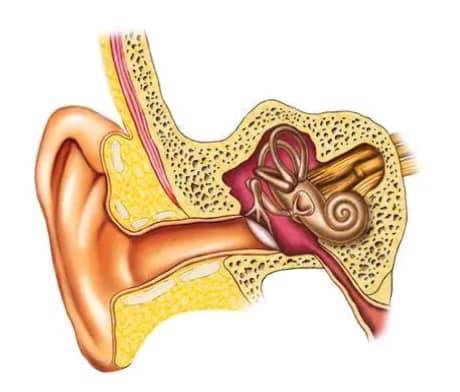Are neurodegenerative diseases genetic?
Studied Biomedical Engineering at Indiana University - Purdue University Indianapolis11mo. Some are and some are not. For example, there is such a thing as familial Alzheimer's disease. It is very rare, but it is completely genetic. However, the majority of Alzheimer's cases are sporadic. There are certain genes that are known to increase your chances of developing Alzheimer's. One of the most important examples is the APOE mutation. However, having this mutation doesn't guarantee you'll get the disease—it just slightly increases your chances. Carrying multiple mutations that increase your chances of Alzheimer's increases your chances even more. Many cases of Alzheimer's, however, do not have known genetic risk factors.
 |
| neurodegenerative disease nucleolus |
Neurodegenerative Diseases: What is Ataxia?
Ataxia is a medical condition characterized by various coordination disturbances caused by damage to the cerebellum (the part of the brain that regulates the motor function and coordination), spinal cord, or peripheral neurons. Depending on the underlying cause, it can appear at any age. This condition can occur with diseases that affect the nervous system, such as alcohol degeneration, multiple sclerosis, immunologic diseases (including celiac disease and multiple sclerosis), neoplasms, infections, and strokes. There are also several hereditary types, which are brought about by gene mutations.
 |
| neurodegenerative disease dementia |
Ataxia is difficult to treat due to a wide array of possible causes. Current clinical studies look for new drugs as well as new methods, including stem cell therapy.
Patients with ataxia may have problems with routine tasks and independent living skills. They are usually the first to notice coordination problems, which can manifest as abnormal gait patterns and frequent tripping. In addition to these early walking problems, the following signs and symptoms may appear later:
➤Reluctance to speak.
➤Difficulty chewing and swallowing.
➤Visual and cognitive impairments.
➤Tiredness.
➤Difficulty with concentration.
➤Heart problems.
Severe headache, nausea, and vomiting (which are symptoms of life-threatening conditions such as stroke)
What do different neurodegenerative diseases have in common?
 |
| most common neurodegenerative disease |
Furthermore, the transfer of protein aggregates between cells, the process of cell death results in the release of excessive neurotransmitters and non-specific autoimmunity, and then further nerve cell damage.
Cognitive symptoms (memory loss, abnormal sensory function, etc.), motor symptoms (ataxia, chorea, etc.), sleep disorders, and accompanying emotional symptoms (depression, emotional disturbances, etc.) may occur in various neurodegenerative diseases. There are differences between neurodegenerative diseases in this respect.
.
How can I reduce my risk of developing neurodegenerative diseases?
My comments get more votes than my replies!8y Disclaimer: This does not cover hereditary brain diseases. One trick would be getting your brain working without stressing it out. Reading is a simple idea.
Instead of reading about it, think about how much more impact something has on TV. This is because persuasive visuals, along with audio, implant the idea in our brains without us having to think about it.
Now consider reading the same thing. The mind will do the work, using past experiences, imagination, and ideas to carve out what the object will actually look like in motion. There reading is more beneficial in keeping the mind active. Try to read what you like, preferably positive. Even fiction will do.
 |
| neurodegenerative diseases treatment |
Why is neurodegenerative important?
What is Alzheimer's disease?
At any age and at any time, the brain can be affected by the degeneration of neurons and receptors, and how they react in the body, neurons firing "correctly" means a fully conscious person. Allowing the brain to become overloaded with junk, through not getting enough restorative sleep, can cause the brain to decide to cut off the receptors, and, it's not easy to grow them. Especially as an adult, when growth hormones and stem cells are minimized. So good sleep... good food... activity, good, learning new things, good...
In case you're wondering, I went straight to the point, because of the choice of words, other neurodegenerative conditions, are genetic and thus not diseases. They only match the coding in the body.

.jpg)
.jpg)



